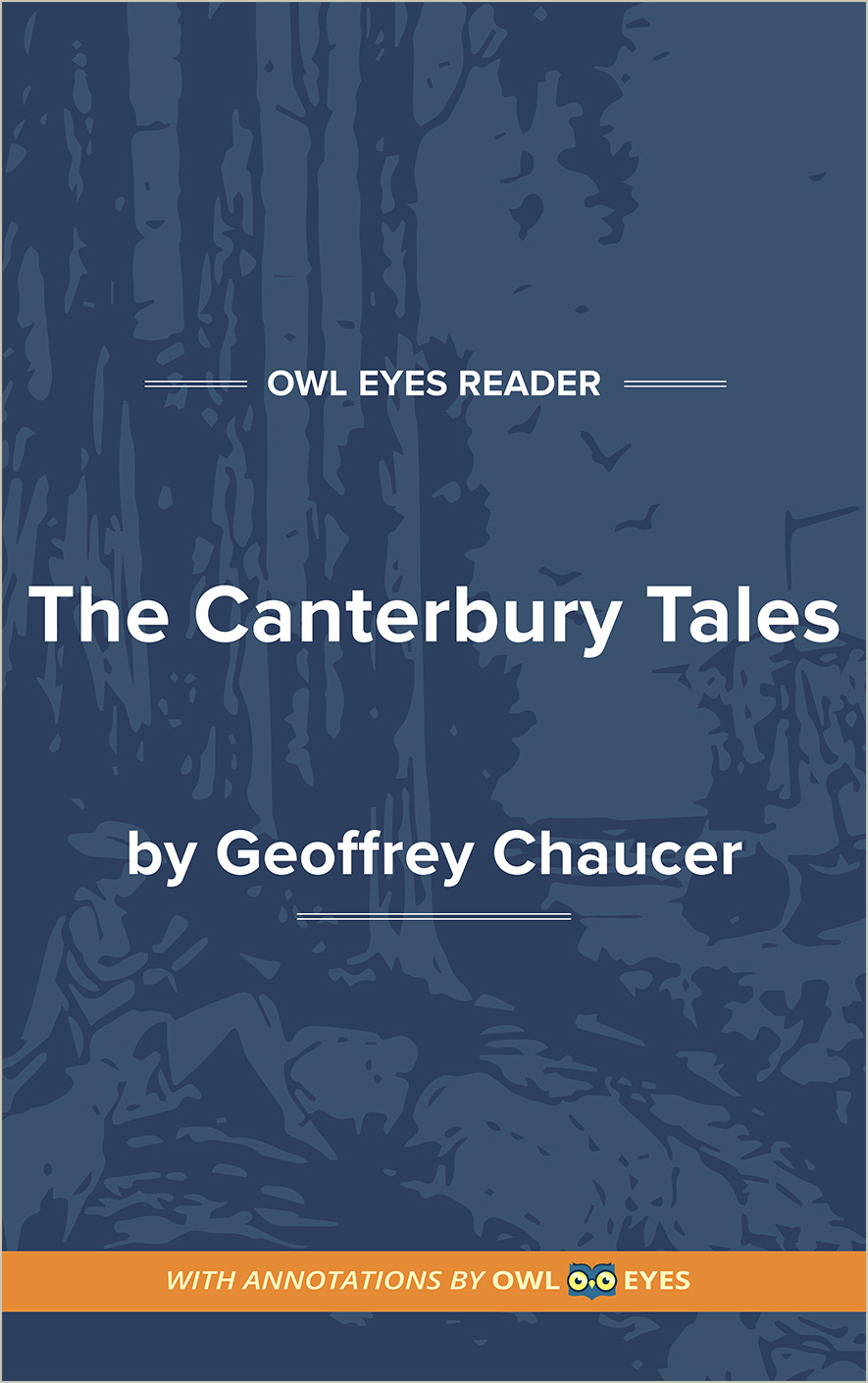Study Guide
Analysis Pages
Geoffrey Chaucer Biography
While historians have been able to reconstruct much about the life of Geoffrey Chaucer (CHAW-sur) from the 493 documents, mostly office records, that mention him, these documents cast light only on the public life of a prominent civil servant; not one refers to him as an author. That is not to say that he was not recognized or appreciated as a poet by his contemporaries: In Chaucer’s day, poetry was considered to be a leisure pastime of talented men, a valuable skill, but not in itself a career. Chaucer, too, probably thought of himself primarily in terms of his public duties rather than his poetry.
The exact date and even year of Chaucer’s birth are unknown; the year 1340 has become traditionally accepted, but 1343 may be a more accurate guess. He was probably born in London, where his parents, John and Agnes, held property. His father was a prosperous wine merchant with business ties to the court of King Edward III.
Despite his middle-class origins, he was to have a distinguished public career as a courtier, soldier, diplomat, and civil servant. No records of his early childhood or schooling have survived, but in 1357 Chaucer received an appointment to serve as a page in the household of Elizabeth de Burgh, countess of Ulster and wife of Edward III’s son Lionel, duke of Clarence. Chaucer apparently went along with Prince Lionel’s forces when England invaded France in 1359, was captured by the French, and then ransomed in 1360.
No direct evidence survives concerning Chaucer’s activities between 1360 and 1366, but Thomas Speght, who edited Chaucer’s works in 1598, claimed to have seen records establishing that Chaucer was studying among the lawyers of the Inner Temple, one of the four great Inns of Court. As expensive academies for the sons of rich or noble families, the inns were more convenient than the universities for a grounding in common law because of their proximity to the law courts in Westminster and also because common law was studied in three languages, English, French, and Latin, at a time when only Latin was used at the universities. A period of study at one of the inns would account for the training in record keeping and legal procedures that would have been considered prerequisite for many of the posts that Chaucer later held.
In 1366 he married Philippa de Roet, a woman well above his own social class, the daughter of a knight and sister of Katherine Swynford. (Swynford was to become the mistress and eventually the third wife of Edward III’s son, John of Gaunt, duke of Lancaster, who would become one of the most powerful men in England.) About 1367, Chaucer began working as a member of the household of Edward III and was soon advanced from the status of yeoman to that of esquire (just below a knight). He apparently had no specific duties and may have been valuable to the household in part for his storytelling abilities. He was engaged in four diplomatic missions to France between 1366 and 1370, and an extended mission to Italy in 1372 and 1373. In 1374, having been made financially independent with a yearly grant and a rent-free house, he left the royal household and became controller of customs for the port of London. It was the first of a series of responsible administrative positions that he would hold through the reigns of three monarchs—a tribute both to his competence and to his ability to remain on good terms with the members of opposing factions.
Chaucer’s busy life in public affairs was apparently never a serious obstacle to his creative work. Indeed, most of his poetry seems to have been written during the years of his most active public service, and relatively little after his retirement. Since Chaucer’s works were all written before the introduction of the printing press into England and existed only in his manuscripts and copies made of them by scribes, there are no exact dates of “publication” of any of his works. Dating the works is further complicated by evidence that he left...
(The entire page is 1,246 words.)
Owl Eyes subscribers get unlimited access to our expert annotations, analyses, and study guides on your favorite texts. Master the classics for less than $5/month!

